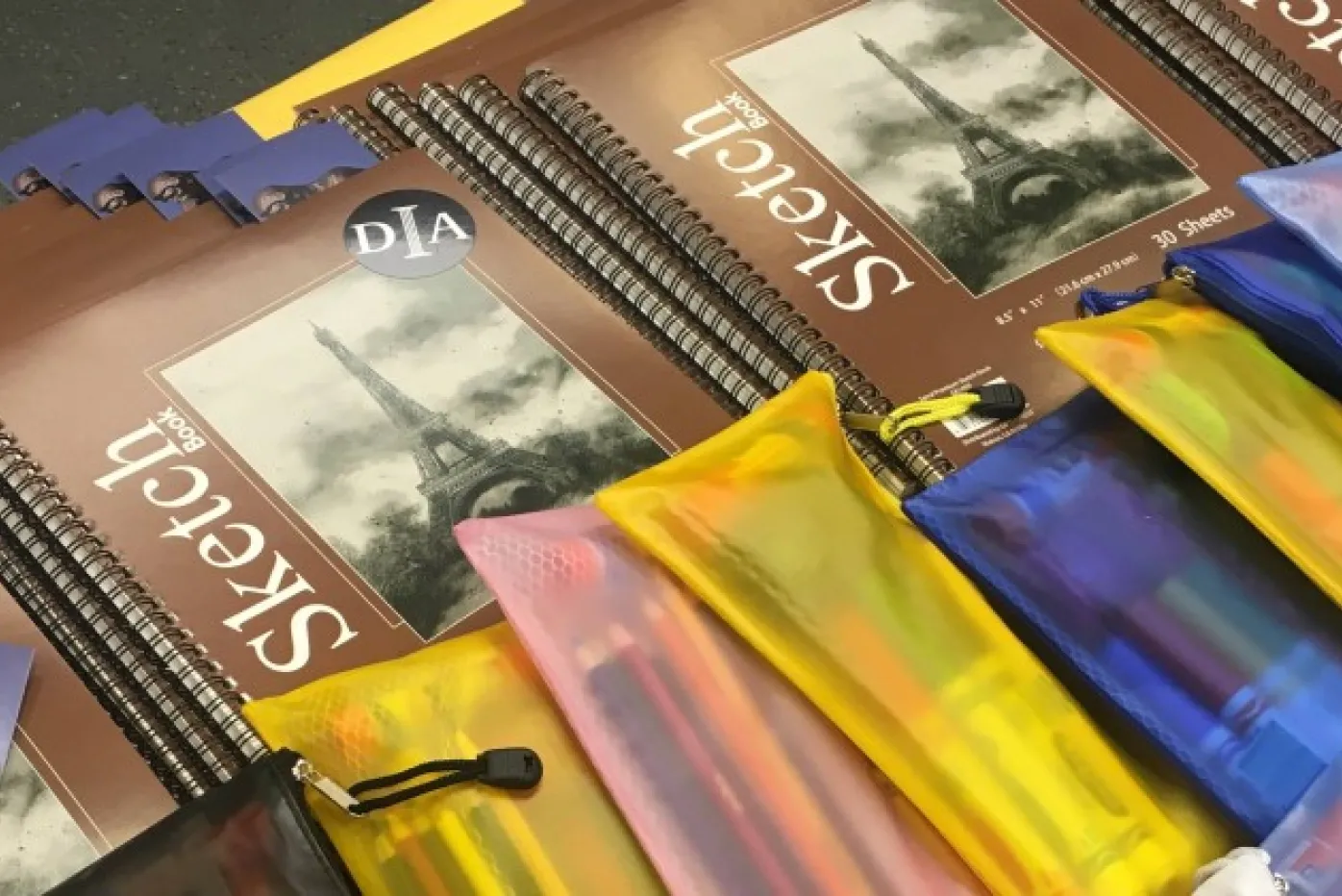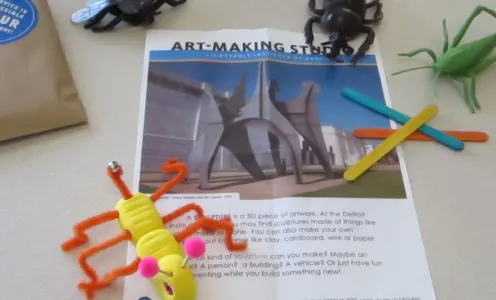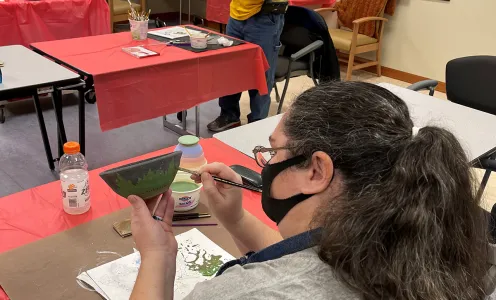Minds on Art
Updated Jul 20, 2022
The Detroit Institute of Arts (DIA) partners monthly with the Alzheimer’s Association Michigan Chapter on the virtual Minds on Art program, a unique opportunity for individuals in the early and mid-stages of the disease to create meaningful experiences together through art. It provides cognitive stimulation, encourages socialization, helps reduce stress and anxiety, as well as enriches relationships and promotes self-expression.
“With Alzheimer's, some people can feel challenged answering questions for fear of getting the answer wrong," said Jean Barnas, Alzheimer’s Association program services director. “During Minds on Art, the DIA uses visual thinking strategies (VTS) where no answer is wrong. It is so perfect for this population because it increases engagement and the enjoyment of learning.”
Barnas added, “I personally treasured attending the Minds on Art program with my Mom who had Alzheimer's. Not only did we spend quality time together, we spent time as mother and daughter instead of a person living with dementia and a care partner. The program benefited both of us. Seeing my mom light up in a comfortable group and seeing her engaged warmed my heart!”

During this online program, DIA staff show participants objects from the collection and lead them through making their own artwork with items from around the house. Postcards, greeting cards, collages, and various ways of drawing have been explored.

Dozens of sketchbooks and art supplies sorted out
The Detroit Institute of Arts (DIA) partners monthly with the Alzheimer’s Association Michigan Chapter on the virtual Minds on Art program, a unique opportunity for individuals in the early and mid-stages of the disease to create meaningful experiences together through art. It provides cognitive stimulation, encourages socialization, helps reduce stress and anxiety, as well as enriches relationships and promotes self-expression.
“With Alzheimer's, some people can feel challenged answering questions for fear of getting the answer wrong," said Jean Barnas, Alzheimer’s Association program services director. “During Minds on Art, the DIA uses visual thinking strategies (VTS) where no answer is wrong. It is so perfect for this population because it increases engagement and the enjoyment of learning.”
Barnas added, “I personally treasured attending the Minds on Art program with my Mom who had Alzheimer's. Not only did we spend quality time together, we spent time as mother and daughter instead of a person living with dementia and a care partner. The program benefited both of us. Seeing my mom light up in a comfortable group and seeing her engaged warmed my heart!”

During this online program, DIA staff show participants objects from the collection and lead them through making their own artwork with items from around the house. Postcards, greeting cards, collages, and various ways of drawing have been explored.


